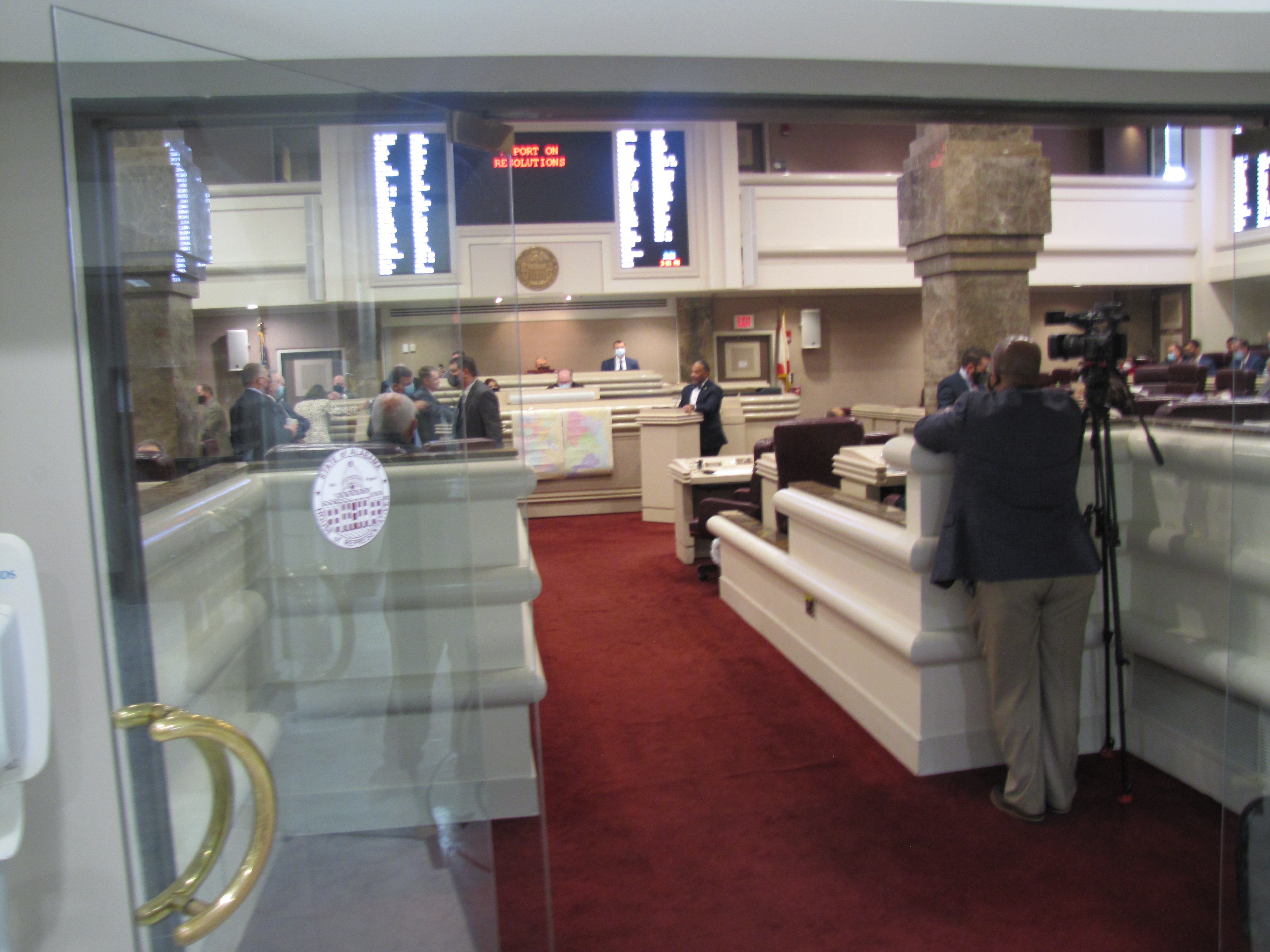The Alabama House of Representatives passed a bill banning the teaching of divisive concepts in state agencies and K-12 public schools.
House Bill 312 is sponsored by State Rep. Ed Oliver (R-Dadeville).
“This legislation is needed to keep children from being taught to hate other people and hate America,” Oliver said on the Alabama House floor. “Divisive concepts are well defined.”
The bill defines as divisive any of the following concepts:
That one race, sex, or religion is inherently superior to another race, sex, or religion.
That this state or the United States is inherently racist or sexist.
That an individual, solely by virtue of his or her race or sex, is inherently racist, sexist, or oppressive, whether consciously or unconsciously.
That an individual should be discriminated against or receive adverse treatment solely on the basis of his or her race.
That members of one race should attempt to treat others differently solely on the basis of race.
That an individual's moral character is determined solely on the basis of his or her race, sex, or religion.
That an individual, solely by virtue of his or her race, sex, or religion, bears responsibility for actions committed in the past by other members of the same race, sex, or religion.
That fault, blame, or bias should be assigned to a race, sex, or religion, or to members of a race, sex, or religion, solely on the basis of their race, sex, or religion.
That any individual should be asked to accept, acknowledge, affirm, or assent to a sense of guilt, complicity, or a need to work harder solely on the basis of his or her race or sex.
Alabama Governor Kay Ivey (R) and the State Board of Education banned teaching the highly controversial Critical Race Theory (CRT) in Alabama’s K-12 schools this summer.
State Superintendent Eric Mackey has repeatedly said that CRT is not being taught in Alabama public schools. CRT is not named in this bill, but that did nothing to diminish the controversy in the legislature.
Opponents to the bill believe the bill would somehow alter how history is taught.
“Racism begins with slavery in this country,” said State Rep. Juandalynn Givan (D-Birmingham). “Our ancestors were brought here in slaves ships, brutally beaten, raped, and maimed in some cases and you don’t even know the history.”
“All the damn issues we could focus on in this state you choose this one,” said House Minority Leader Anthony Daniels (R-Huntsville). “You have chosen for your legacy to be the guy that tried to erase the teaching of history in this state.”
“We have to understand where our pitfalls are, and slavery was a pitfall,” said Rep. Mary Moore (D-Birmingham).
“This issue is about controlling history and what is taught,” Daniels said.
"What I find striking about this legislation is that you can’t tell me or anyone in this room how it is going to be applied,” said Rep. Chris England (D-Tuscaloosa).
“The Trail of Tears, why did it happen? What can we do to make sure that it doesn’t happen again?” Moore said. “To get that graduate-level we look at that critical race.”
“This does nothing to prevent the teaching in post-secondary,” Oliver said.
“We need to drop this bill,” Moore said. “It appeals to the weak-minded. It is a lie. Nobody is teaching people to hate in school, nobody. You need to drop this bill.”
“We had to have an equal rights law because of racism,” said State Rep. Thomas Jackson (D-Thomasville). “Why do we need this? Who is teaching people in school to hate?”
“This bill is designed to shield people from the uncomfortable truth that exists in this country, in this state,” England said. “It really disturbs me that we are sitting here debating a bill to keep White people from feeling uncomfortable.”
“Nobody in public education allows critical race theory to be taught in public schools,” said Jackson. “How are you going to explain this to your grandchildren?”
“To me and in the eyes of many people like me this is racist,” Daniels said. “This piece of legislation is going to impact education.”
“Divisive speech is protected speech,” England said.
The House passed HB312 by a vote of 65 to 32.
The legislation now moves to the Alabama Senate for their consideration.
The Legislature will not meet again until Tuesday, Mar. 29 as the Legislature is taking its spring break next week. Thursday was day 23 of the 2022 Alabama Regular Legislative Session. The 1901 Constitution limits the legislative session to a maximum of 30 legislative days in a regular session.
To connect with the author of this story, or to comment, email brandon.moseley@1819News.com.










